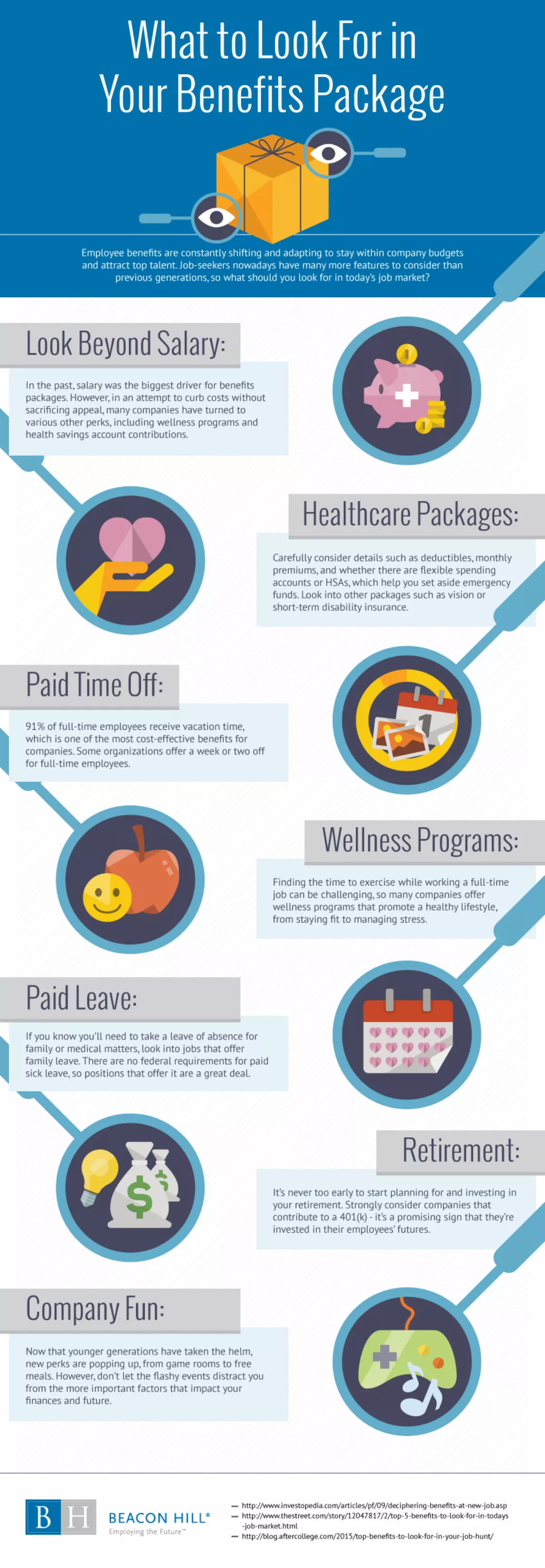When Does Health Insurance Start at a New Job: Key Factors to Consider
When Does Health Insurance Start at a New Job? After a waiting period, commonly about 30-90 days. This waiting period allows time for enrollment processing.
Starting a new job comes with several benefits, including health insurance coverage. Understanding when your health insurance will begin is essential for planning purposes. Employers often have a waiting period before coverage kicks in, usually around 30 to 90 days.
During this time, you may have the option to enroll in the company’s health insurance plan. Ask about the specific waiting period and coverage details to ensure you have the necessary healthcare protection at the right time. Remember that having health insurance is a crucial aspect of overall financial planning and well-being.
2. Understanding Health Insurance Start Dates
When starting a new job, health insurance coverage is one of the most important aspects to consider. Understanding when your coverage begins is essential to ensure you can receive healthcare when needed without any delays or gaps in protection.
Having health insurance coverage is essential for maintaining your physical and financial well-being. When unexpected medical expenses arise, having insurance can provide you with the necessary financial support, preventing you from being burdened with hefty medical bills.
Moreover, health insurance allows you to visit healthcare providers regularly, ensuring you are proactive about your health. Routine check-ups can help identify potential health issues before they become more serious, leading to early intervention and better outcomes.
Health insurance start dates can vary depending on the company policies and the type of coverage offered. It is crucial to understand the different start date options to plan for any potential gaps in coverage accordingly.
1. Immediate Coverage:
Some employers offer immediate health insurance coverage, meaning your policy takes effect from the first day of employment. This is excellent news as it ensures you access healthcare services as soon as you join the company. Please check with your employer to see if immediate coverage is available.
2. Waiting Period:
Sometimes, companies may impose a waiting period before health insurance coverage begins. This means you may have to wait for a specific duration, such as 30 or 90 days, before your policy becomes active. You may be responsible for any medical expenses incurred during this waiting period. Understanding the waiting period is crucial to avoid unexpected healthcare costs.
| Status | Waiting Period | Health Insurance Start Date |
|---|---|---|
| Employee | 30 days | 31st day of employment |
| Dependents | 60 days | 61st day of employment |
3. Enrollment Periods:
Some companies have designated enrollment periods during which you can sign up for health insurance. These periods may occur annually or semi-annually; if you miss the enrollment window, you might have to wait until the next one.
Understanding the different health insurance start dates is crucial to making informed decisions about your healthcare needs. Whether you have immediate coverage or need to navigate waiting periods, being aware of your start date allows you to plan accordingly and avoid any gaps in coverage. Remember to consult your employer or the company’s HR department for specific details regarding your health insurance start date at a new job.
:max_bytes(150000):strip_icc()/retirement-planning.asp-FINAL-ed21279a08874c54a3a0f4858866e0b6.png)
Credit: www.investopedia.com
3. Waiting Periods For Health Insurance
One important consideration when starting a new job is the waiting period for health insurance coverage. Understanding waiting periods is crucial to planning your healthcare needs.
3.1 What Is A Waiting Period?
A waiting period refers to the time an employee must wait before becoming eligible for health insurance benefits provided by their employer.
3.2 Common Waiting Period Lengths
- 30 days
- 60 days
- 90 days
These are typically the most common waiting period lengths you may encounter when starting a new job.
3.3 Exceptions To Waiting Periods
There are exceptions to waiting periods, such as if you had prior health coverage or fell under exceptional circumstances that may allow immediate coverage.
Understanding waiting periods and exceptions can help you make informed decisions about your healthcare coverage when transitioning to a new job. Please carefully review your employer’s health insurance policies to know when your coverage will start.
4. Enrollment Periods
During the enrollment periods, health insurance typically starts within the first month of a new job. Please know about the specific coverage start dates the employer provides.
Understanding enrollment periods is crucial for starting a new job with health insurance benefits. There are specific periods during which you can sign up for health coverage.
4.1 Initial Enrollment Period
The initial enrollment period typically begins soon after you start your new job. You can enroll in the employer’s health insurance plan during this period. It’s essential to take advantage of this window to secure coverage.
4.2 Special Enrollment Periods
Special enrollment periods occur outside the initial enrollment period and are triggered by certain life events, such as getting married or having a baby. These periods allow you to change your health insurance coverage outside the standard enrollment window.

Credit: beaconhillstaffing.com
5. Factors Affecting Health Insurance Start Dates
Factors influencing health insurance start dates include employer policies, waiting periods, enrollment dates, and processing times. Understanding these aspects is crucial for managing health coverage transitions. Could you review the details with HR to ensure a smooth transition into the new plan?
When starting a new job, one of the essential considerations is understanding when your health insurance coverage will begin. Several factors can impact the start date of your health insurance, ensuring that you can be adequately prepared for any healthcare needs that may arise. Below, we explore the key factors that can affect when your health insurance coverage begins:
5.1 Company Policies
Company policies regarding health insurance can vary widely. Some companies have waiting periods before health insurance coverage begins, while others may provide coverage from the first day of employment. It would be best to familiarize yourself with your employer’s policies, which is crucial to understanding the exact timeframe for insurance coverage initiation. This information is typically provided in the employee handbook or discussed during onboarding.
5.2 Type Of Employment
Your employment type can also affect when your health insurance coverage starts. Full-time employees generally have more immediate access to health insurance benefits than part-time or contract employees. Therefore, if you are starting a job as a full-time employee, your health insurance start date may coincide with your first day of work. However, if you are in a part-time or contract position, there may be a waiting period before you become eligible for health insurance benefits.
5.3 Job Start Date
The specific date you start your new job can impact when your health insurance coverage begins. Some companies have specific enrollment periods during the year, while others provide immediate coverage regardless of the start date. If you begin your job in the middle of an enrollment period, your health insurance coverage may start on a predetermined date, typically the beginning of the following month.
On the other hand, if your company offers immediate coverage, your health insurance benefits may start from your first day of employment. It is essential to clarify this information with your employer or the HR department to ensure you understand when your health insurance will begin.
6. Obtaining Temporary Coverage
Obtaining health insurance coverage may take time to start a new job. In the interim, individuals can explore temporary health insurance options to bridge the gap until their new employer’s coverage begins.
6.1 Short-term Health Insurance
Short-term health insurance provides coverage for a limited duration, usually ranging from one month to a year. This option suits individuals needing temporary coverage while transitioning between jobs, waiting for new employer benefits to commence, or facing a coverage gap. These plans often offer essential benefits and can be an affordable solution for short-term needs.
6.2 Cobra Coverage
COBRA, which stands for Consolidated Omnibus Budget Reconciliation Act, allows eligible employees and their dependents to continue their group health coverage under their former employer’s plan for a period after job loss or a qualifying event. While COBRA coverage can be more expensive due to the entire premium paid by the individual, it provides continuity in health insurance. It ensures no coverage gap during the job transition period.
:max_bytes(150000):strip_icc()/Terms_u_unemployment-c21253f0c00f45558740d30333ac6e98.jpg)
Credit: www.investopedia.com
7. Negotiating Health Insurance Start Dates
When starting a new job, negotiating the start date for health insurance is essential for ensuring you have coverage from day one. Understanding how to approach this process can help you navigate the complexities of health insurance at a new job.
7.1 Discussing Start Date During The Hiring Process
When discussing the start date during the hiring process, clarify the details of your health insurance coverage. Inquire about the potential waiting period for benefits to begin, as this can vary among employers. Ensuring a seamless transition between existing coverage and your new policy’s start is essential.
7.2 Communicating With Employer Or Hr Department
After being hired, you must communicate with your employer or HR department about your health insurance start date specifics. Provide any necessary documentation or information they require promptly, which can expedite the process. Clearly state your desired start date and any factors influencing this decision, such as terminating previous coverage or upcoming medical appointments.
Frequently Asked Questions Of When Does Health Insurance Start At A New Job
When Does Health Insurance Coverage Start At A New Job?
Health insurance coverage typically starts on the first day of the month following your employment start date. However, it would be best to review your specific job offer and benefits package to confirm the exact start date of your health insurance coverage at a new job.
Is It Possible To Get Health Insurance Immediately When Starting A New Job?
In most cases, health insurance coverage begins after some time when starting a new job, as there is typically a waiting period before benefits become effective. Please review the details of your job offer and benefits package to understand your new job’s specific waiting period for health insurance.
How Long Is The Waiting Period For Health Insurance At A New Job?
The waiting period for health insurance at a new job varies depending on the employer’s policies and the terms of the benefits package. Typically, waiting periods can range from 30 to 90 days before health insurance coverage becomes effective. It’s essential to understand this timeline before starting a new job.
Conclusion
The start date of health insurance at a new job can vary depending on several factors. I would like you to know that understanding the company’s policies and the waiting period mentioned in the employee benefits package is essential. Although waiting periods are standard, some employers may offer immediate coverage.
Remember to inquire about specific deadlines and enrollment periods to ensure you have the necessary coverage. Remember to familiarize yourself with the details of your health insurance plan so that you can make the most of your benefits.












